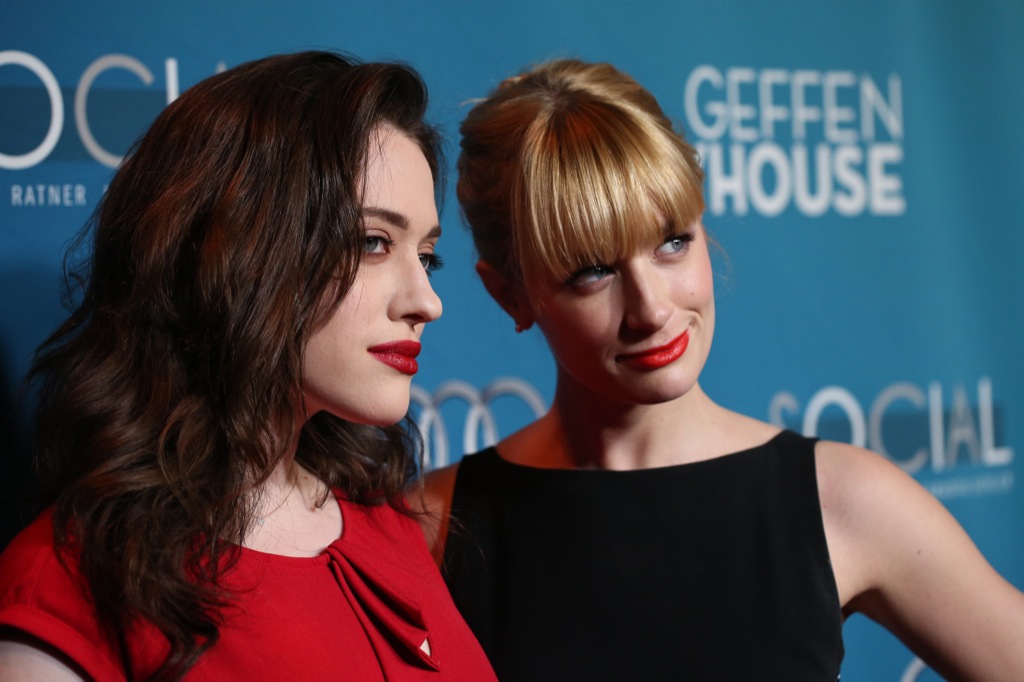Is it possible to separate an actress's public persona from potentially leaked private images? In the often-turbulent waters of celebrity culture, the answer remains a complex and evolving discussion, especially when personal privacy intersects with public interest and the ubiquity of the internet.
Katherine Victoria Litwack, better known by her professional name Kat Dennings, is an American actress whose career has spanned film and television, captivating audiences with her wit, charm, and distinctive presence. Born on June 13, 1986, Dennings embarked on her acting journey at a young age, eventually establishing herself as a recognizable face in Hollywood.
| Category | Details |
|---|---|
| Full Name | Katherine Victoria Litwack |
| Born | June 13, 1986 |
| Birthplace | Philadelphia, Pennsylvania, U.S. |
| Occupation | Actress |
| Years Active | 2000present |
| Notable Roles | Max Black in "2 Broke Girls," Darcy Lewis in the Marvel Cinematic Universe ("Thor" franchise, "WandaVision") |
| Early Career | Appeared in "Sex and the City" (2000), Disney Halloween film "The Scream" (2002) |
| Key Filmography | "The House Bunny" (2008), "Nick and Norah's Infinite Playlist" (2008), "Thor" (2011), "Thor: The Dark World" (2013), "2 Broke Girls" (2011-2017), "Thor: Love and Thunder" (2022) |
| Awards and Recognition | Nominated for Teen Choice Awards, People's Choice Awards |
| Height | 5 ft 4 in (1.63 m) |
| Partner | Andrew W. K. (engaged) |
| Official Website | IMDB Profile |
Dennings's journey into the world of acting began with an appearance on HBO's "Sex and the City" in 2000, in the episode "Hot Child in the City." This early role served as a stepping stone, paving the way for her to secure other opportunities within the industry. It's a common thread for many aspiring actors, those initial appearances often being critical in terms of gaining experience and exposure.
The actress's career gained further traction when she appeared in the Disney Halloween film "The Scream" in 2002. Her ability to portray a range of characters in varying genres would ultimately contribute to her versatility and appeal to a broad audience. Dennings's roles since then have been diverse, highlighting her talent.
The digital age has changed the relationship between celebrities and their audience. The internet, with its instantaneous communication and vast reach, has become a stage where information, both verified and unverified, circulates at an unprecedented pace. This constant flow of information has altered how public figures interact with their fans, how news is consumed, and, unfortunately, how privacy is often perceived.
The term "Fappening" and associated search terms have, at times, been linked to Dennings, bringing to light the ongoing challenge of safeguarding personal information in the digital sphere. While there are platforms dedicated to organizing celebrity nudity from television and movies, the focus remains on the content itself rather than on the individual's agency or privacy.
In the modern media landscape, it is not uncommon to encounter claims of leaked or unauthorized content, sometimes accompanied by assertions of nudity or explicit material. This often occurs, with or without the consent of the individuals involved. It's a stark reminder of the vulnerabilities inherent in our increasingly interconnected digital world.
The rise of social media has amplified the reach and impact of such incidents. The speed at which rumors and unverified claims can spread across platforms presents a unique challenge to public figures and their teams. These rapid-fire cycles of information can often overshadow legitimate concerns and leave public perception open to manipulation.
The "2 Broke Girls" series, in which Dennings starred as Max Black, was a critical and commercial success, further establishing her as a household name. The series' popularity, however, also underscores the high visibility of the show's stars. The exposure is a double-edged sword. While it elevates visibility, it also exposes actors to a greater degree of public scrutiny.
The media coverage of Kat Dennings often touches on her professional accomplishments, and on the content available on sites such as "pornhub.com" and others. Some content is focused on exploring her acting career and discussing the roles and characters that have made her famous. Others, however, often focus on aspects of her personal life, including images of the actress taken out of context.
In the context of discussing her career, it's important to acknowledge the role that fan communities play in fostering admiration and support. However, it's equally important to discuss how online communities, particularly those focused on celebrity content, can sometimes cross the line. In this case, that line often concerns the distribution of images and videos that may be viewed as exploitative or as a violation of privacy.
The proliferation of such content highlights the complex intersection of fame, technology, and personal privacy. The ongoing debate surrounding the ethical considerations involved in the creation, distribution, and consumption of such material reflects society's evolving understanding of digital boundaries and personal rights.
The availability of images and videos, regardless of their origin, has created an environment where individuals' likenesses can be subject to widespread and uncontrolled dissemination. This raises questions about the responsibility of online platforms and the ethical considerations involved in curating and distributing content.
The emergence of the "Fappening" incident has underscored the potential for malicious actors to exploit digital vulnerabilities and to create and share unauthorized images. The fallout from such events can have severe consequences for those involved, including reputational damage, emotional distress, and a sense of violation.
"Aznude" has a stated mission to archive and make accessible nude scenes from television and film, highlighting the cultural and artistic significance of such moments. But even with such curated efforts, the question of consent and the potential for exploitation cannot be overlooked. The distinction between artistic expression and the unauthorized distribution of private images is a crucial one.
The act of creating and distributing content of this nature poses significant ethical challenges. The potential for harm, especially when the subjects are unaware or unwilling participants, raises questions about the boundaries of artistic freedom and the responsibilities of those involved in the media ecosystem.
The public perception of celebrities, and how it influences their careers, can be profoundly shaped by the narrative surrounding their personal lives. The constant scrutiny they face demands a careful balancing act between public performance and private protection. The challenges are often considerable.
The focus on celebrity images is not always about artistic appreciation or cultural commentary. Sometimes, the motive is purely voyeuristic, driven by a desire to see more of an individual's personal life. This focus may be amplified by the easy accessibility and the virality that is inherent in the digital world.
The legal implications of unauthorized image distribution and the complex web of laws surrounding privacy rights are crucial considerations. They vary depending on the jurisdiction, and they are constantly evolving as technology advances and new challenges emerge.
In a world where images can be easily manipulated and disseminated, it's important to recognize the potential for deception and the importance of verifying information. This includes the role that deepfakes and other forms of digital manipulation play. These can be used to create and distribute images that are entirely fabricated.
As an actress, Kat Dennings has been noted for her work in the Marvel Cinematic Universe. Her role as Darcy Lewis in the "Thor" franchise and the series "WandaVision" has further solidified her place in the mainstream entertainment landscape. The increased profile that comes with these roles also, inevitably, comes with a greater degree of media attention, both positive and negative.
The conversation around celebrity nudity often intersects with discussions of body image, representation, and the objectification of women in the media. The intersection of these issues underscores the complexity of this subject matter.
As the digital landscape continues to evolve, so too must the conversations surrounding privacy, consent, and the ethical considerations of image distribution. It is vital to foster a culture that respects individual rights and promotes responsible behavior online.
The case of Kat Dennings, like many others, is a stark reminder of the need to protect the privacy of individuals in an age of relentless connectivity. The stories of actresses, celebrities, and other public figures highlight how much is at stake when privacy is breached.


